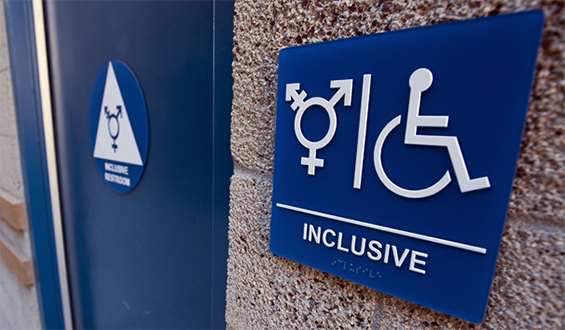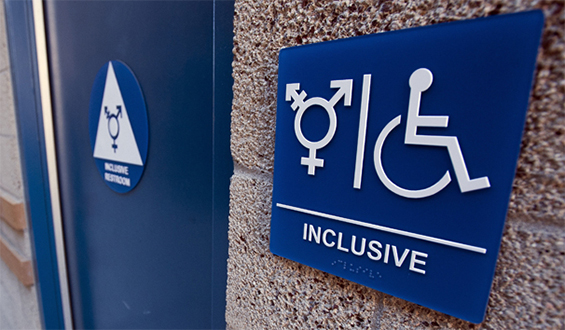
In a seven to four vote that took place earlier this week, the Charlotte City Council passed an LGBT nondiscrimination bill despite a warning from North Carolina Governor Pat McRory that the state may play a role in negating it if it passed.
The Charlotte City Council added sexual orientation, gender identity and marital status to the list of attributes protected from discrimination concerning public accommodations such as restaurants, retail stores, and other businesses. The law, taking effect on April 1st, would not apply to public schools.
While the measure discusses how businesses will be required to treat LGBT individuals, the focus of the debate is on bathrooms. The bill would make it legal for transgender people to choose which public bathroom they would like to use based on the gender they identify with. The governor said that changing the rules concerning public restrooms could “create major public safety issues,” writes Dominic Holden for BuzzFeed.
An email was sent out to city officials by the governor on Sunday saying “immediate” action could be taken by state lawmakers concerning the new law. No word has been given by his office on what action the legislature could take.
“This ordinance is impossible to regulate as intended, and creates undue regulatory burdens on private businesses,” said state Speaker of the House Tim Moore in a statement. I join my conservative colleagues and Governor McCrory in exploring legislative intervention to correct this radical course.”
This is not the first case of this nature to appear in the country. Last year, a similar anti-discrimination ordinance was approved by Houston’s city council only to be overturned by a voter referendum after concerns were raised pertaining to bathroom safety. Meanwhile, the South Dakota legislature passed a bill that would require students to use the bathroom that corresponds to their gender from birth, which transgender activists opposed.
Advocacy group Equality NC is currently criticizing McRory for “perpetuating the same tired and debunked myths about transgender people and public safety.”
In a survey, members of the LGBT community in Charlotte said the changes were welcome as they were previously treated poorly by businesses, being denied service, receiving poor service, or being the recipients of rude comments. Meanwhile, a letter was sent to the Council by opponents, which included clergy and some business members, who said they should have the right to refuse service on the basis of sexual orientation or gender identity, writes Erik Spanberg for The Charlotte Business Journal.
According to research conducted by council staff members, some residents said they were worried that sexual predators would take advantage of the ordinance in order to gain entrance into the women’s restroom for assault or indecent exposure. However, the researchers added that they had not found any evidence that these types of crimes had increased in other cities that had similar ordinances.
A similar measure was previously defeated by the Charlotte City Council in March 2015 even after removing the bathroom provision. Later, local officials stated that transgender people had the right to use the bathroom that corresponded to their gender identity in city- and county-owned facilities.




